Intervenant / Panelist
M. Antony Taubman
Directeur de la division de la propriété intellectuelle de l’Organisation Mondiale du Commerce (OMC) / Director of Intellectual Property Division of the World Trade Organization (WTO. Antony Taubman is currently Director, Intellectual Property Division, World Trade Organization, with responsibility for the WTO's programs on intellectual property, competition policy and government procurement. From 2002 to 2009, he was Director, Global Intellectual Property Issues Division of WIPO (including the Traditional Knowledge Division and Life Sciences Program), covering a wide range of programs on intellectual property and genetic resources, traditional knowledge and folklore, the life sciences, and related global issues including public health and climate, the environment, climate change, human rights, food security, bioethics and indigenous issues. After a diplomatic career, he left the Australian Department of Foreign Affairs and Trade (DFAT) in 2001 to join the newly-formed Australian Centre for Intellectual Property in Agriculture, at the Australian National University, teaching and researching on international IP law. From 1998 to 2001, he was Director of the International Intellectual Property Section of DFAT, and in that capacity was engaged in multilateral and bilateral negotiations on intellectual property issues, domestic policy development, regional cooperation, and TRIPS dispute settlement. He authored a training handbook on intellectual property and biotechnology, a monograph on the TRIPS Agreement and a comprehensive study on its implementation, and a range of academic and general publications on international intellectual property law and policy. Postgraduate teaching appointments at several universities include curriculum design and teaching at the University of Melbourne, the Australian National University, and Queensland University of Technology, as well as numerous contributions to other educational and training programs in many countries. In 2008, the Rockefeller Foundation awarded him a Bellagio residential fellowship for his work on TRIPS and public policy issues. He joined DFAT in 1988 as a career diplomat, and his service included disarmament policy and participation in the negotiations on the Chemical Weapons Convention, a posting in the Australian Embassy in Tehran as Deputy Head of Mission, and a posting to the Hague as Alternate Representative to the Preparatory Commission for the Organisation for the Prohibition of Chemical Weapons and Chair of the Expert Group on Confidentiality. He previously worked for WIPO from 1995 to 1998, his duties then including development cooperation in Asia and the Pacific, the development of the revised WIPO program and budget, and associated policy development. A registered patent attorney, he worked in private practice in the law of patents, trade marks and designs in Melbourne in the 1980s. His tertiary education has included computer science, mathematics, engineering, classical languages, philosophy, international relations and law, and he has taught ancient Greek philosophy at Melbourne University.
What developments for the international intellectual property system? Président / Chairman Lionel BENTLY, Professeur en droit de la Propriété Intellectuelle Herchel Smith et Directeur du Centre de Droit de la Propriété Intellectuelle et du Droit de l’Information, Université de Cambridge / Herchel Smith Professor of Intellectual Property and Director of the Centre for Intellectual Property and Information Law (CIPIL), University of Cambridge
Durée :
COLLOQUE CÉLÉBRANT LES 50 ANS DU CEIPI : Les perspectives d’évolution du système de propriété intellectuelle à l’heure de la mondialisation
Du au
Conseil de l’Europe, Strasbourg
Université de Strasbourg - CEIPI - Centre d'études internationales de la propriété intellectuelle
PERSPECTIVES FOR THE
INTELLECTUAL PROPERTY SYSTEM
IN A GLOBALIZED WORLD
Au cours des dernières décennies, le système de propriété intellectuelle a connu des changements significatifs en lien avec l’émergence de nouvelles formes d’innovation et de création. Les industries liées à la propriété intellectuelle constituent des facteurs clefs de performance économique. Dans le même temps, les défis posés par l’essor de nouveaux moyens de communication, l’expansion du commerce international, la mise en œuvre d’initiatives au niveau global pour faire face aux défis environnementaux, culturels ou liés à la santé publique ont profondément influencé de nombreux secteurs dans lesquels la propriété intellectuelle joue un rôle important. Afin d’adapter le régime de la propriété intellectuelle à ce nouveau contexte, d’importantes initiatives sont en cours au niveau européen et international. Elles nécessitent une réflexion collective et un véritable débat.
Organisé à l’occasion du 50ème anniversaire du Centre d’études internationales de la propriété intellectuelle (CEIPI), ce colloque international sera l’opportunité de rassembler de hauts représentants du monde de la propriété intellectuelle et des institutions publiques, des universitaires de renom, d’éminents professionnels et des représentants de l’industrie afin qu’ils puissent partager leur vision concernant les changements passés et à venir. L’objectif de cet événement est également de proposer, à l’heure de la mondialisation, des pistes de développement futur pour les systèmes européen et international de propriété intellectuelle.
http://www.ceipi.edu/index.php?id=5518&no_cache=1&tx_ttnews[tt_news]=7621

